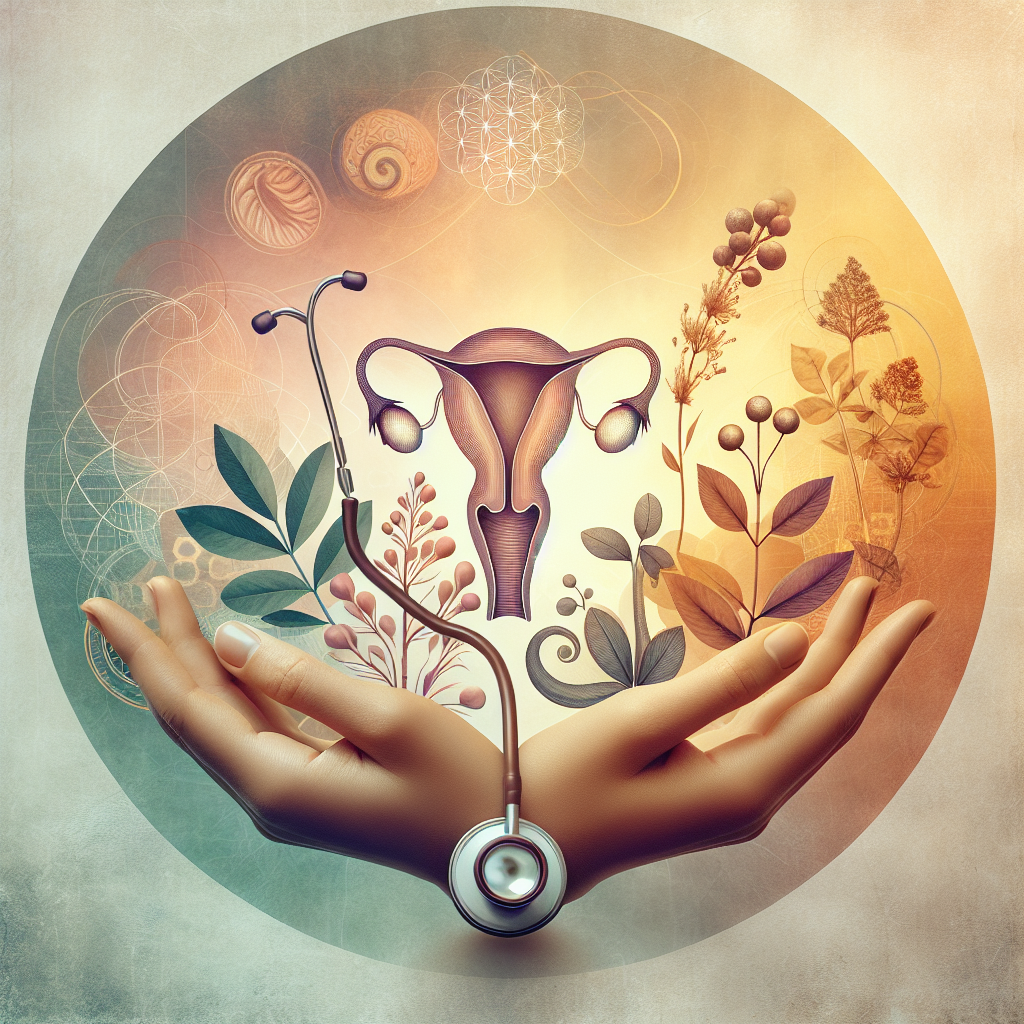Holistic Healing for Irritable Bladder Syndrome: Integrating Western Medical and Eastern Alternative Approaches for Comprehensive Care
Introduction
Irritable Bladder Syndrome (IBS), also known as Bladder Pain Syndrome (BPS), is a chronic condition characterized by pelvic pain, urinary urgency, and frequency. Affecting millions worldwide, it significantly impacts the quality of life, causing discomfort and emotional distress. While Western medical practices focus on symptomatic relief through pharmacological treatments and surgeries, Eastern alternative approaches like Traditional Chinese Medicine (TCM) and Ayurveda emphasize restoring balance and holistic wellness. This article explores the integrative potential of combining Western and Eastern modalities to offer a comprehensive care plan for those suffering from Irritable Bladder Syndrome.
Western Medical Approaches
In Western medicine, the diagnosis and treatment of Irritable Bladder Syndrome rely primarily on clinical evaluation, cystoscopy, and urodynamic testing. Standard treatments can be categorized into pharmacologic and non-pharmacologic interventions.
Pharmacologic Treatments
1. Oral Medications: Western medicine often prescribes analgesics, anti-inflammatory drugs, and muscle relaxants to alleviate pain and discomfort associated with IBS. Anticholinergic drugs like oxybutynin are commonly used to reduce urinary frequency and urgency by relaxing the bladder muscles.
2. Intravesical Treatments: These involve the direct instillation of medications into the bladder. Dimethyl sulfoxide (DMSO) and heparin are often used to reduce inflammation and promote the healing of the bladder lining.
Non-Pharmacologic Treatments
1. Physical Therapy: Pelvic floor physical therapy helps in strengthening and relaxing the pelvic muscles, offering symptomatic relief and improving bladder control.
2. Dietary Modifications: Western doctors recommend avoiding irritants such as caffeine, alcohol, and acidic foods. An elimination diet is often suggested to identify and avoid specific triggers.
3. Surgical Interventions: In severe cases, surgical options like bladder augmentation or even bladder removal may be considered. However, these are generally last-resort measures owing to their invasive nature and potential complications.
Eastern Alternative Approaches
Eastern medicine views the body as an interconnected system, where balance and harmony are essential for health. Traditional Chinese Medicine (TCM) and Ayurveda are two prominent schools offering alternative approaches to managing Irritable Bladder Syndrome.
Traditional Chinese Medicine (TCM)
1. Acupuncture: Acupuncture, a cornerstone of TCM, involves inserting thin needles into specific points on the body to restore the flow of Qi (vital energy). Research has shown that acupuncture can alleviate bladder pain and reduce urinary frequency by stimulating nerve pathways and promoting natural healing.
2. Herbal Medicine: TCM employs various herbs to treat IBS. Common formulations include a mix of herbs like Gosha-jinki-gan, which has shown promise in reducing urinary urgency and frequency. These herbal concoctions aim to balance the body’s energies and eliminate toxins.
3. Dietary Therapy: TCM practitioners recommend a balanced diet rich in whole grains, vegetables, and lean proteins to strengthen the spleen and kidneys, organs believed to influence bladder health.
Ayurveda
1. Herbal Remedies: Ayurveda uses herbs like Gokshura (Tribulus terrestris) and Punarnava (Boerhavia diffusa) to support urinary health. These herbs possess anti-inflammatory and diuretic properties, helping to detoxify the urinary tract and reduce symptoms.
2. Panchakarma: This detoxification therapy includes treatments like Abhyanga (oil massage) and Basti (medicated enema) to eliminate toxins from the body. Panchakarma aims to restore balance and promote holistic well-being.
3. Yoga and Meditation: Ayurveda emphasizes the importance of a balanced mind-body connection. Yoga and meditation practices can help manage stress, a known trigger for IBS symptoms, and improve overall bladder control.
Comparing Western and Eastern Approaches
Philosophical Foundation: The primary distinction between Western and Eastern approaches lies in their philosophical foundations. Western medicine adopts a symptomatic and often reductionist approach, focusing on specific symptoms and affected organs. In contrast, Eastern practices embrace a holistic view, considering the interconnectedness of body, mind, and spirit.
Treatment Goals: Western treatments aim for immediate symptomatic relief and may involve invasive procedures. Eastern modalities focus on long-term balance and prevention, employing natural and non-invasive methods to restore harmony.
Patient-Centered Care: Both approaches can be patient-centered but in different ways. Western medicine offers evidence-based treatments and quick relief, making it suitable for acute cases. Eastern practices provide personalized care through individualized treatment plans that address the root cause of symptoms.
Efficacy and Evidence: Western medicine is backed by extensive clinical research and regulated by stringent standards. Eastern practices, while rooted in centuries-old traditions, often lack rigorous scientific validation. However, growing research highlights the efficacy of certain Eastern treatments, such as acupuncture and herbal medicine, in managing IBS symptoms.
Integrative Potential
The integration of Western and Eastern approaches offers a promising avenue for comprehensive IBS care. By combining the strengths of both modalities, patients can experience holistic healing and improved quality of life.
1. Collaborative Care: A multidisciplinary approach involving Western physicians, TCM practitioners, and Ayurvedic experts can provide a well-rounded treatment plan. Regular communication among healthcare providers ensures coordinated and effective care.
2. Complementary Treatments: Patients can benefit from a combination of pharmacologic treatments and alternative therapies. For instance, acupuncture can be used alongside oral medications to enhance pain relief and reduce inflammation.
3. Lifestyle Modifications: Integrating dietary recommendations from both Western and Eastern perspectives can optimize nutritional support and minimize symptom triggers. Stress management techniques from Ayurveda, such as yoga and meditation, can complement Western physical therapy for pelvic floor health.
Conclusion
Irritable Bladder Syndrome is a complex condition requiring a multifaceted treatment approach. While Western medicine provides symptomatic relief and evidence-based interventions, Eastern alternative practices offer holistic and personalized care. Integrating these approaches can offer patients a comprehensive care plan that addresses both immediate symptoms and long-term well-being. By embracing the strengths of both Western and Eastern modalities, healthcare providers can offer a more balanced and effective solution for those suffering from Irritable Bladder Syndrome.

